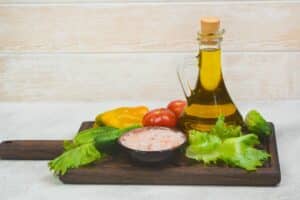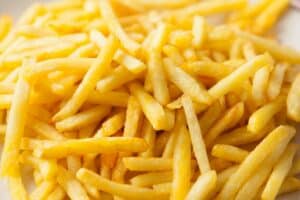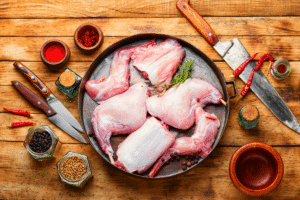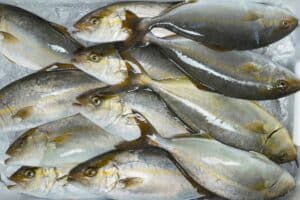When you begin your weight loss journey or you want to begin taking more thought into what goes into your body, then you have probably heard that lean cuisines are the best.
They are low in fat and calories, so you can eat a lot of them while getting in shape. Right?
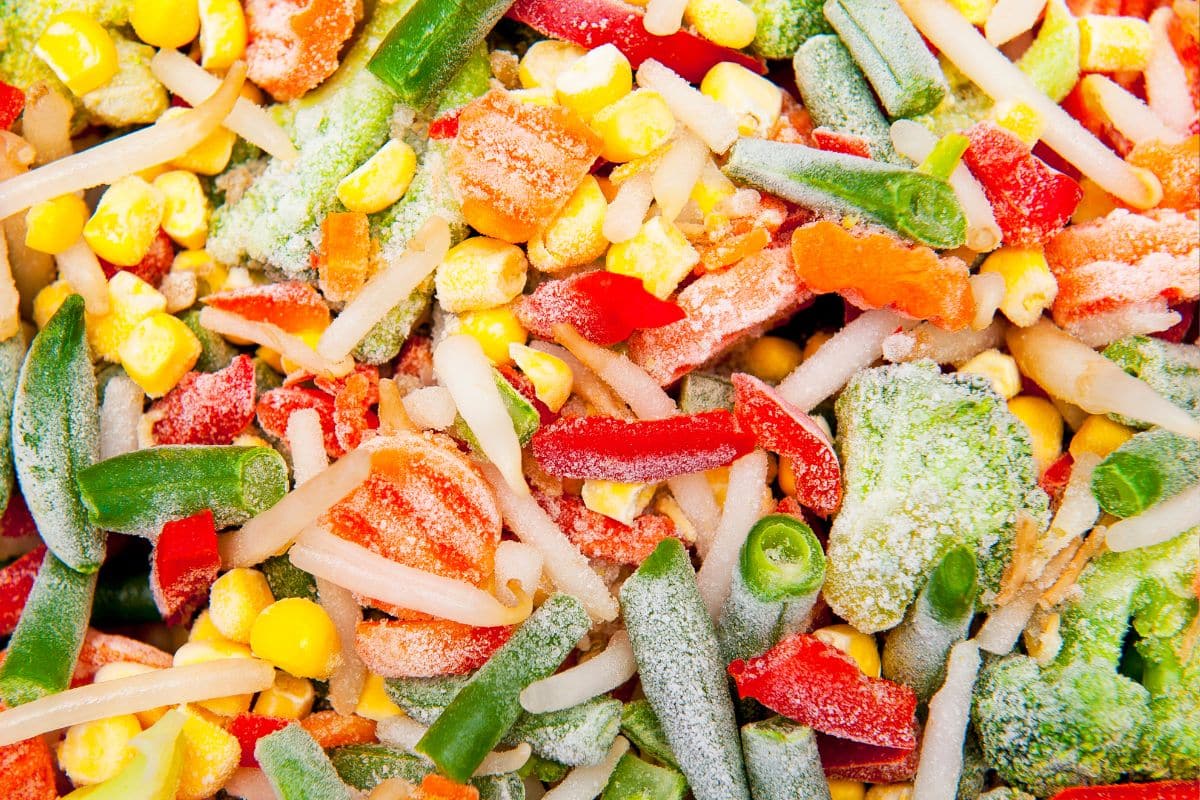
Well, that may not be the case. Some lean cuisines are known for having a lesser nutrient content and can even contribute to weight gain and bad health.
So, you want to know are lean cuisines healthy?
In this article, we discuss what lean cuisines are healthy and which you should avoid.
By the end of this article, you will know exactly what you are putting into your body and the effects it can have on your health.
Keep reading to find out more!
What Are Lean Cuisines?
Lean Cuisine is a brand of frozen meals that is popular in America and Canada.
It is owned and produced by Nestle or Vesco in Australia. They offer a wide variety of entrees that claim to be low in calories, fat, sugar, and cholesterol.
Perfect if you have an extremely busy lifestyle and want to take good care of your health.
The brand first began in 1981 and has been extremely good at adapting to the needs of the market.
It was created to offer a healthier alternative to Stouffer’s frozen meals. Their meals are simple and only take a few minutes in the microwave to cook.
Today there are over 100 different meals to choose from. Each meal is separated into a category of:
- Comfort Classics
- One Dish Favorites
- Casual Eating Classics
- Cafe Classics
- Spa Cuisine Classics
- Dinnertime Selects
So that no matter the occasion there is something for everyone to enjoy. However, there have been many debates over whether the meals the brands produce are actually healthy.
Are Lean Cuisine Meals Good For You?
With the name Lean Cuisine, the FDA believes that there is a claim that the meals hold a certain amount of essential nutrients.
All Lean Cuisine meals are required to meet the criteria set by the FDA. This criterion is:
- Less than 10g Fat
- 4.5g or Less Saturated Fat
- Less than 95 mg Cholesterol
Items from Lean Cuisine are likewise under calorie restriction, with the majority of them falling between 200 and 300 calories, with a minimum of 140 calories and a maximum of 400 calories.
However, while they are low in nutrients that are typically deemed bad for our bodies, they are not exactly high in the nutrients we need.
On average there is only 10 grams of protein for every 225 grams of Lean Cuisine meals. There is even less fiber at 3.1 grams and 5.1 grams of carbohydrates.
Overall, Lean Cuisine products are not the best way to fuel your body. However, when you are in a pinch, they are not going to do you or your fitness journey any harm.
Health Benefits Of Lean Cuisine
While there is a fine line between healthy and unhealthy, especially in the world of frozen meals. There are some health benefits to including Lean Cuisine in your diet.
No Added Preservatives
Preservatives are chemical substances that are typically added to foods that help them last longer and remain fresh.
They were first introduced to the market in the late 19th century and have been popular since.
However, with recent advancements in science, it has been discovered that these preservatives can be harmful to humans.
So, it became even more important that brands add any preservatives to their products.
Some of the most harmful preservatives that can be added to food are sodium nitrate, potassium bromate, and BHA.
Lean Cuisines prides its brand on not having any added preservatives in its products. Everything used in Lean Cuisines products is natural.
High In Vitamin C
The average adult male requires 90 mg of vitamin C while the average adult female requires 75mg.
Sourcing vitamin C naturally in our diets as we opt for more meat-heavy foods and fewer fruits and vegetables.
Lean Cuisine meals are rich in vitamin C which is essential for the body’s ability to heal.
Enjoying just 1 Lean Cuisine meal can provide you with 1% of your daily intake of vitamin C. A lot easier than eating a mountain of oranges.
Blood pressure is neutralized by vitamin C, and memory is enhanced. Additionally, a deficiency of vitamin C in the body harms the skin, hair, and teeth.
Rich In Potassium
Potassium is a nutrient that is often neglected in our diets. However, it is essential for managing the balance of fluids in the body and heart health.
Adults and even children over the age of 4 are recommended to have 3500mg of potassium per day. Which seems incredibly high but is actually easy to obtain with a healthy balanced diet.
The FDA mandates that potassium content be disclosed on new food labels.
Although foods with lower percentages of DV nevertheless contribute to a healthy diet, foods with 20% or more of DV are regarded as high sources of a particular nutrient.
A serving of lean food has 339 mg of potassium or 7% of the daily value. Potassium aids in the body’s metabolism of carbohydrates and protein synthesis.
Learn Portion Control
In today’s society, it is common for us to eat more than we need. This leads to obesity and other extreme health issues.
Lean Cuisine produces smaller portion sizes in order to remain within the claimed calories. This can be a good tool for understanding portion sizes and how much your body actually requires to be healthy.
Cons Of Lean Cuisine
While there are plenty of advantages to including Lean Cuisine meals in your diet, there are also plenty of cons to be considered.
Low In Flavor
Even with the healthy branding and messages sent out by Lean Cuisine, it is still a frozen meal.
Frozen meals have come a long way since their rise in popularity in the 1950s, however, they still lack the flavor that a fresh home cooked meal can provide.
If you don’t mind adding some extra salt and pepper to your meals then you may enjoy the flavors, or lack thereof, that Lean Cuisine provides.
High In Sodium
Lean foods are high in sodium or salt. Approximately 6 grams of salt should be consumed daily. 255 grams of lean food have 520.2 mg of sodium in them, or 23% of the daily value.
Consuming too much sodium raises blood pressure, heart attack risk, and possibly stroke risk. Physicians advise reducing dietary salt intake.
Therefore, keep the appropriate amount in mind the next time you eat lean foods.
Frozen manufacturers use a higher sodium content in their products to make up for the fact that their food is less than delicious.
Not Satisfying
You can end up hungry and missing some nutritional components if you only eat Lean Cuisine.
The servings are absurdly small in order for the meal’s calories to range between 200 and 400 calories due to their small size and dependence on processed carbs.
The same dependence also suggests some nutritional deficiency.
At the end of the day, nothing can replace the satisfaction of enjoying fresh fruits, vegetables, meats, and carbs.
Heavily Processed
In order to be frozen and last for extended periods of time, Lean Cuisine foods are heavily processed. This is not good for anyone.
The majority of nutrition experts agree that meals with a lot of processing don’t support good health.
For your calories, they suggest eating lean protein sources with few additional additives and nutritious meals like fruit and vegetables.
Destroy Muscle
For your body to remain healthy and function normally, it requires a certain level of nutrients.
Low-calorie meals such as Lean Cuisine may not provide your body with the level of nutrients it needs to sustain muscle growth.
This is why people who are coming to the end of their weight loss phase will enter a ‘bulking phase’ which allows them to raise their nutrient levels and rebuild muscle.
Including Lean Cuisine into your diet on a regular basis may cause the muscle to deteriorate which can be extremely dangerous.
Are Lean Cuisine Meals Good For Weight Loss?
Due to the branding that Lean Cuisine is healthy and provides low-calorie meals, many people believe that their products are good for weight loss. However, this may not be true.
In order to lose weight in a healthy way, you must be in a calorie deficit.
But you must also be getting your daily dose of essential nutrients. Fiber, protein, carbohydrates, and healthy fats are all important when it comes to losing weight.
Lean Cuisine offers low-calorie meals but they are not exactly high in the nutrients you require.
They are also high in sodium which can cause your body to hold onto water for a longer period of time.
Ideally, when on a weight loss journey, you want to fuel your body with natural whole foods.
Although, if you are in a pinch for time or don’t have any groceries at home, Lean Cuisine can help you out and make sure you have something to eat.
Can Diabetics Enjoy Lean Cuisine?
There are over 37 million Americans living with diabetes. And so, it only makes sense that brands produce products that are diabetic-friendly. Lean Cuisine is one of them.
In 2023, Lean Cuisine launched its new line of products that are marketed toward diabetic consumers.
Although, it has been debated on whether their products are actually safe for diabetics to include in their diets.
Diabetics require a diet that supports healthy blood sugar levels. This can look like this:
- 50% of the plate is non-starchy vegetables.
- 25% of the plate is lean protein.
- 25% is a good carbohydrate source.
Four new bowl options from Lean Cuisine are available: brown rice, black beans, and vegetables; lemon garlic shrimp with veggies and brown rice; eggplant parmesan; and pasta primavera.
Each meal claims to have zero sugar and is 400 calories or less. This would seem perfect if you are looking to control your condition.
This new range of products does offer a sufficient amount of protein and fiber for a diabetic diet. However, it is lacking in portion size.
If you are a diabetic, it is recommended that you add some more steamed veggies to this dish to help add fiber and give you a larger portion size without adding sugar or large amounts of salt.
Should Older People Eat Lean Cuisine Meals?
Another group of people that are often questioned on whether they not should include Lean Cuisine meals into their diets are the over 50s.
As we get older, our bodies require different things. To remain fit and healthy, our bodies need plenty of protein, carbohydrates, and veggies.
However, we also lose a lot of the mobility and strength we once had which can make cooking our own meals tricky.
Lean Cuisine is a popular choice among older adults because they are easy to make to offer a wide variety of flavors. They also hold some nutrients and vitamins that are essential for our health.
Another benefit to Lean Cuisine is that it is safer due to temperature control.
From packaging to the moment you pop it in the microwave, the food is kept at or near freezing temperatures.
This means you can cook your food at ease knowing there is less risk for foodborne illnesses.
Although, they still lack a good amount of protein and other nutrients that our bodies need. No matter our age.
People over the age of 50 may enjoy a Lean Cuisine meal when they don’t have the ability to make their own meals.
But having only Lean Cuisine meals every day is not the best option.
3 Best Lean Cuisine Meals
If you are intrigued by the meals that Lean Cuisine has to offer, then you are in the right place. Below are 3 of the best Lean Cuisine meals for you to try.
1. Lean Cuisine Balsamic Chicken
This frozen meal provides tender pieces of cooked chicken with brown rice, carrots, and red peppers, all soaked in a balsamic vinegar sauce.
The flavors are a little more fine dining than a lot of the other meals on offer.
Perfect for when you want something a little more refined but is still simple and easy to enjoy.
This entire meal is only 220 calories, so you may want to add a few more steamed veggies or even some more rice to keep you fuller for longer.
2. Lean Cuisine Grilled Chicken Carbonara
Nothing beats coming home and enjoying a plate of creamy pasta. This Lean Cuisine Grilled Chicken Carbonara is both comforting and tasty.
Including tender slices of grilled chicken and crumbled bacon resting on a bed of rigatoni pasta with a range of vegetables. This is all topped with parmesan cheese for the perfect bite.
Simply microwave and enjoy every single mouthful. You may want to add a slice of garlic bread for added texture and flavor.
At just 290 calories you can enjoy every single bite without any of the guilt that often comes with indulging in a bowl of pasta.
3. Roasted Eggplant With Parmesan & Pasta
If you follow a vegetarian diet then this Roasted Eggplant with Parmesan & Pasta is going to be right up your street.
Inside you will find whole grain pasta coated in a tomato basil sauce and roasted eggplant pieces all topped with delicious parmesan cheese.
It has zero added sugar and boasts a decent 13 grams of protein.
There is half a cup of veggies in this yummy dish making it perfect for lunch or a light dinner when you are in a rush. Although you may want to add an extra portion of veggies to bulk it out a little.
Final Thoughts
So, are Lean Cuisine meals healthy? Ultimately, no. Lean Cuisine meals are not healthy and should not be a large portion of your diet.
They are rather high in sodium and low in essential nutrients our bodies need.
The best option is to enjoy natural, whole foods straight from the supermarket. This is the best way to know what is going into your body and to get the most out of your food.
However, if you are in a rush and need something quick, Lean Cuisine meals can be the perfect product.
Frequently Asked Questions
Lower-calorie frozen meals offer a handy, calorie-controlled choice that may help with weight loss, and they remove the guesswork out of calculating calories and other macronutrients.
No. Frozen dinners have a higher content of sodium which can raise blood pressure. It can also lead to illnesses such as heart disease and stroke.
Frozen dinners can contain a lot of salt and saturated fats which can be harmful to your health. Opt for frozen meals that have low sodium and saturated fat content.



